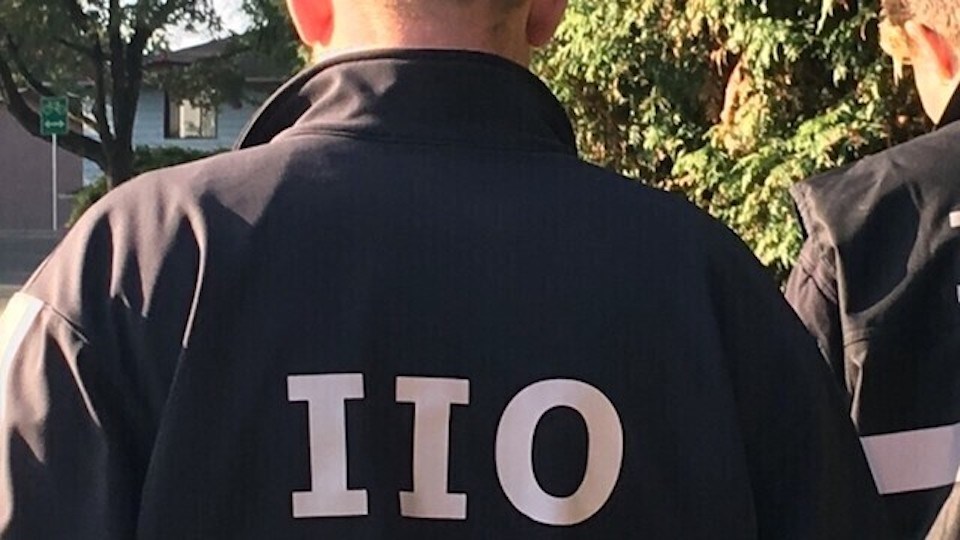Coquitlam RCMP have been cleared of any wrongdoing in the death of a man while in their custody.
Last month, the suspect died in hospital after going into medical distress when police took him down during an arrest for public mischief two days earlier.
He was believed to be under the influence of drugs as he was in his underwear pounding on the front door of a home in the "cold" early hours of Oct. 19, 2021, according to witnesses who called 911.
Today (Nov. 1), more than 12 months later, the Independent Investigations Office of BC (IIO) said there's no evidence suggesting it was unreasonable for officer to use pepper-spray the suspect — known as "AP" in the report — and to "bear hug" him to put him on the ground.
"The involved officers could not have predicted that placing AP on the ground in handcuffs for a brief time in his delirious state would lead to cardiac arrest and his subsequent death," said IIO chief civilian director Ronald J. MacDonald in the public statement.
"On the evidence, as soon as AP showed signs of distress he was cared for appropriately."
Backstory
Coquitlam Mounties were called to the 300 block of Balfour Drive around 3 a.m. on Oct. 19 to reports of a man banging on the front door of a home with his head; he was wearing nothing but his underwear and a T-shirt.
The IIO said he was also consuming "unknown quantities" of drugs during the incident, and one of the neighbours recorded cell-phone video.
When officers found man and evidence showed he was "aggressively pursuing" one of the Mounties (SO1) as they back away.
The officer "then turns and backs up in the opposite direction" as the suspect continued "to come fixedly after him, arms extended in a zombie-like attitude."
The IIO's report further said a male's voice in the video is heard saying, "Get on the ground," but the officer involved does not appear to show any force against the suspect.
"Police radio recordings show that SO1 told other officers that it appeared AP 'wants to fight,' and indicate that SO1 deployed pepper spray at AP in an attempt to subdue him," the report added.
The man was then taken to the ground by a second officer when they arrived on scene, described as a "bear hug" tackle and there was "no evidence that any weapons or blows were used by any officer."
Another officer that arrived on scene told IIO investigators there was "blood on AP's face before he was taken to the ground," and didn't show any efforts to resist an arrest.
Meanwhile, a fourth police officer said the suspect, while handcuffed, was in the recovery position and had asked for a blanket to cover him, but an ambulance was called after he later began to cough and "splutter."
"Shortly after this, officers were not able to find a pulse, so released the handcuffs and started CPR," the IIO added, noting he died in hospital two days later after he was taken to hospital.
"The autopsy report notes the cause of death as the 'combined effects of delirium and multifactorial restraint.' In this case, 'multifactorial restraint' is referring to the brief period that AP was handcuffed and face-down, and the report explains, 'while this position alone would not cause significant breathing difficulty, it likely contributed to breathing difficulty in the setting of a state of delirium and exposure to OC spray…there was no evidence of neck compression, significant blunt force injuries, or significant bruising on the neck, back, or chest resulting from compression/restraint.'"
Mental health, addictions among factors
Other factors in the man's death, the IIO report said, included "chronic polysubstance use, cardiomegaly [enlargement of the heart] and cold exposure."
"Because AP spent a number of days in hospital before blood was drawn upon his death, toxicological analysis was inconclusive."
B.C.'s police watchdog then gathered several pieces of evidence to retrace the suspect's history, as well as the circumstances leading to the death.
This included:
- statements of five civilian witnesses and five witness police officers
- police Computer-Aided Dispatch ('CAD') and Police Records Information Management Environment ('PRIME') records
- audio recordings of a 911 call and police radio transmissions
- civilian cell phone recordings
- medical records
- postmortem report
MacDonald stated the evidence, though not detailed in the report to preserve the privacy of the deceased, showed the victim had suffered from mental health, addictions and medical issues that "culminated in the his actions" that led to his death.
As a result, the IIO said Coquitlam RCMP officers had lawful grounds to arrest the man and the first officer offered "extended opportunity" for de-escalation.





.jpg;w=120;h=80;mode=crop)